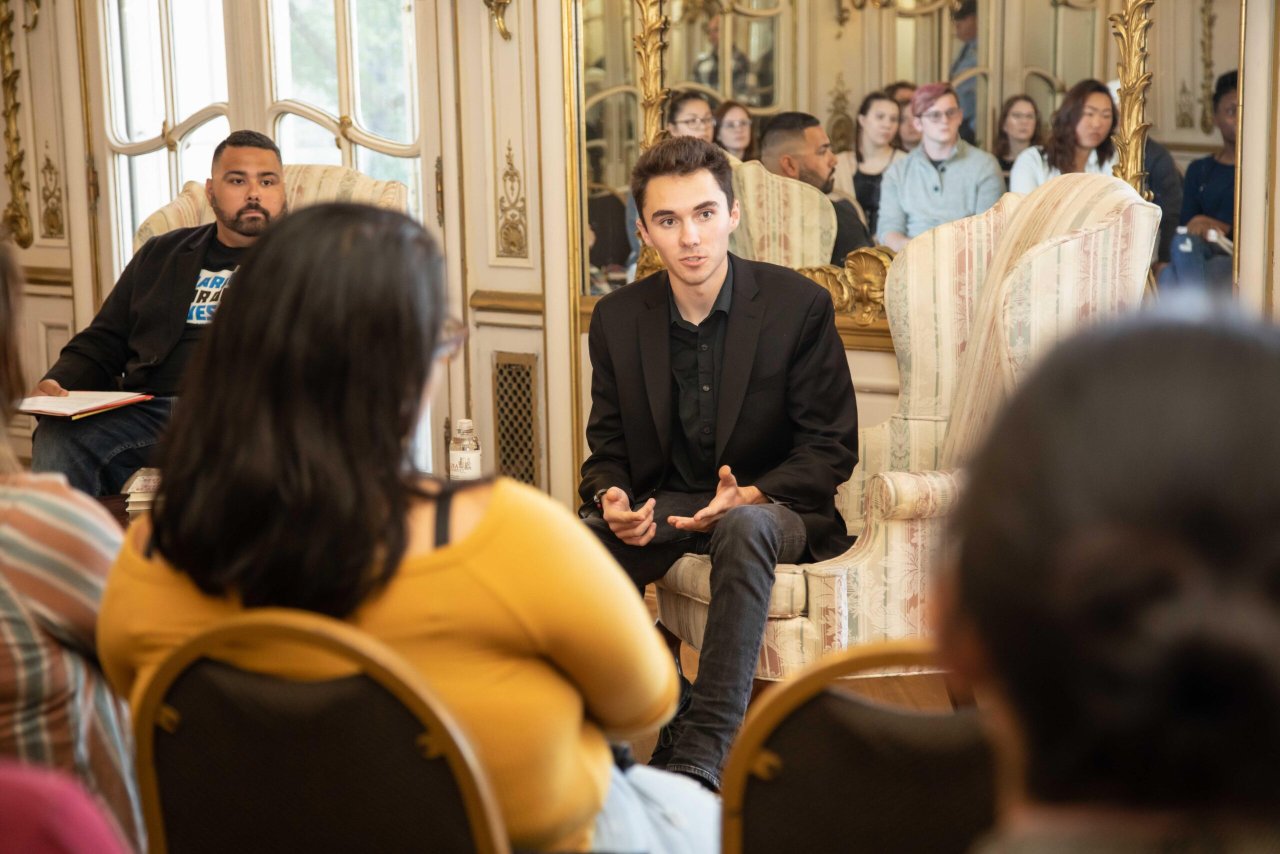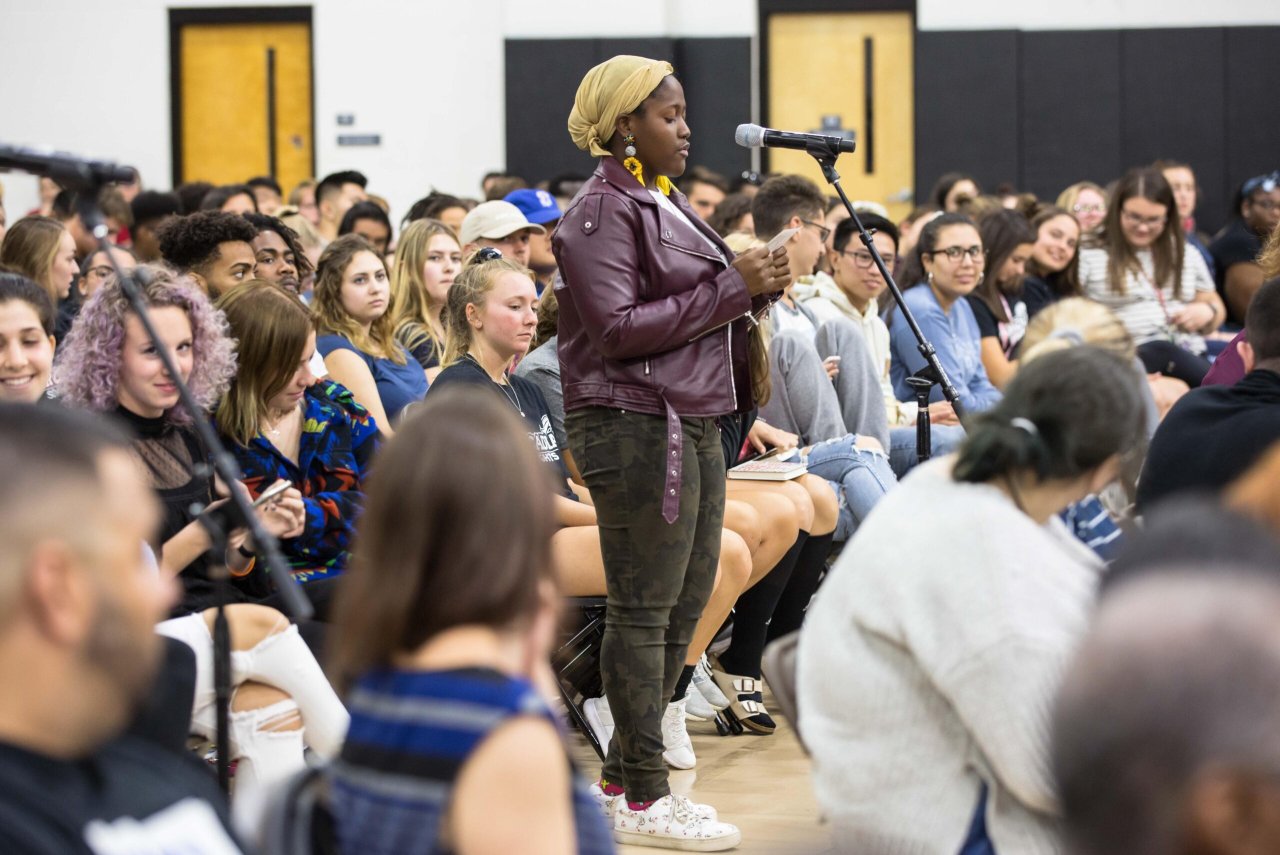Art from Activism
In October, campus was abuzz in anticipation of this year’s Common Read presentation. Common Read is an event that happens each fall semester. First-year students are assigned a book, usually pertaining to an important socio-political issue, that is discussed in both their English classes and their First-Year Seminars.
The event is the culmination of the Common Read process, with the author of the book coming to Arcadia to engage with our campus community.
This year’s special guest was 19-year-old activist David Hogg, who came to represent A Glimmer of Hope: How Tragedy Sparked a Movement. The collection of essays was penned by the survivors of the 2018 Parkland school shooting and describe how they turned such a tragic event into a catalyst for activism and political change. Their March for Our Lives demonstration in Washington, D.C., drew 800,000 attendees and spurred other demonstrations across the world.

Learning about what David and his classmates do is nothing short of astounding. It is hard to believe that they are within my age range and manage to move from doing homework to squaring off with politicians to traveling across the country to advocate for better gun legislation. If only reading about their exploits is exhausting, I can only imagine how they feel actually doing something.
Still, their stories inspired me to take action in my own life. Scrolling through Twitter or putting on the news can feel like a blow to the proveriable kneecaps sometimes—you’re brought to the ground in the face of overwhelming and ominous odds from all facets of life. It makes you doubt how a single person’s voice can have weight in a cacophony of vitriol and noise. It seems much easier to tune out as much as your privilege allows, distracting yourself with unimportant nonsense like 90 Day Fiance to avoid feeling like your country is slipping into early stages of armageddon.

But as de-stressing as that approach can be, I still feel some obligation to engage with the current events around me. Not choosing action can sometimes be as political as taking a stance. Maybe I don’t have the same platform as David Hogg and his peers, but I still have a voice that can be used, the same as anyone else.
It was this line of reasoning that allowed me and my fellow members of Sigma Tau Delta, Arcadia’s English Honor Society, to create our first Social Justice Open Mic event.
Our goal was to create an opportunity for students to share poetry, art, short fiction/non-fiction, spoken word, and more revolving around social issues or social change in order to take a stand for what they are passionate about. Oct. 2 in the Castle brought forth an evening of students tackling issues such as climate change, gender identity, sexuality, and the murky nature of how we recount events and people in history. Some were sharing their work aloud to an audience for the first time.
It can be argued that our little gathering on a Wednesday evening was little more than yelling verse into the void. However, I would say that the influence of art on culture cannot be overstated. From it, we draw our values, our morals. Ultimately, art can be so affecting because it operates from a place of empathy. It draws a person close and allows them to see—from eyes other than their own—a portrait of how the world is and how it can be.
I am glad that Arcadia is a place that sees the significance in this and fosters a community that promotes dialogue, activism, and taking a stand for the things you believe in, rather than simply producing GPA-driven automatons.
– Jess Derr
I am glad that Arcadia is a place that sees the significance in this and fosters a community that promotes dialogue, activism, and taking a stand for the things you believe in, rather than simply producing GPA-driven automatons. I hope after the hustle and bustle of Common Read festivities die down that we continue to have important conversations about some of the uglier things going on in the world; continue to create art from discord or pain; and continue to stand up for the things we believe in.



